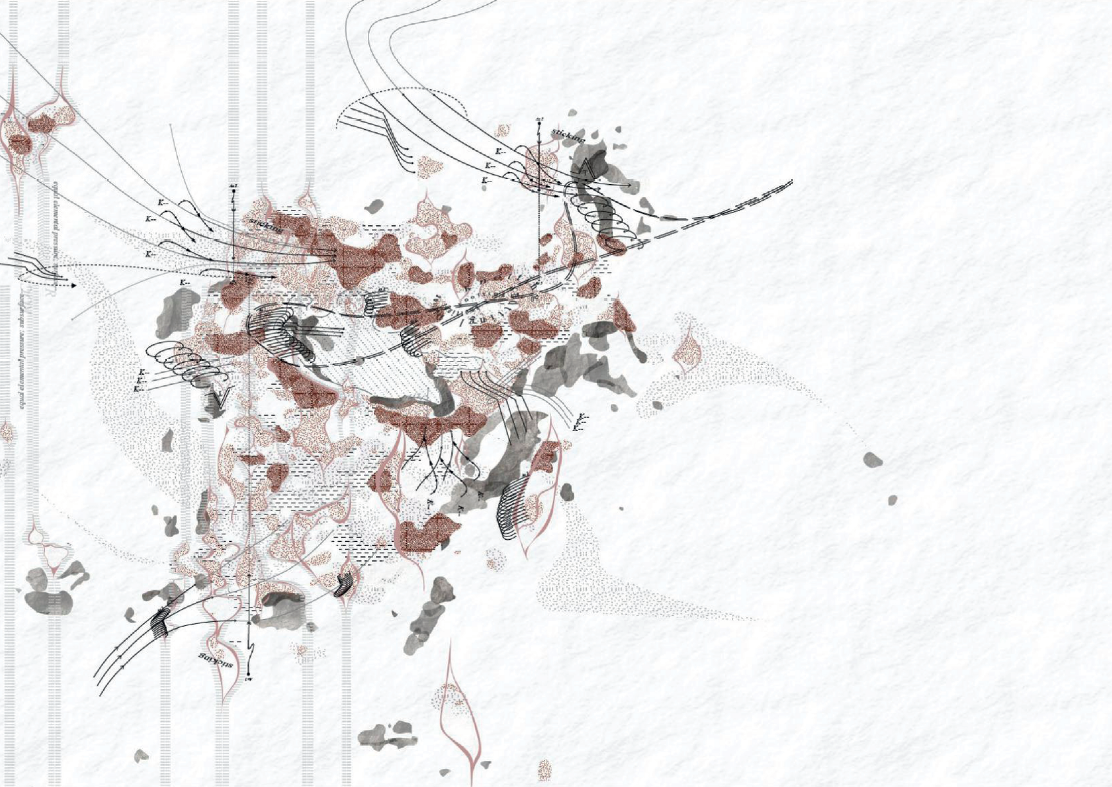
Threads of Receptivity
Bachelor of Landscape Architecture (Honours) / Master of Landscape Architecture
University of Technology Sydney
Teaching staff.
Supervisor: Louisa King, Tamsin Sabehein
Co-supervisor:
Students.
Authors: Olivia Monteleone, Alexandra Duff
One of the key ambitions of the Landscape Architecture program at Sydney’s University of Technology is to challenge the narratives that underpin typical responses to climate change by experimenting with alternative methodologies and forms of representation. The following student design projects are examples of this approach. They mobilise landscape architecture’s capacity to see the environments of our world anew by rethinking the values, assumptions and goals that underpin systems of landscape and habitation in our era of climate uncertainties and anxieties. In each case, the focus is not on finding solutions, but on reframing questions and transforming perceptions and ways of being in the world.
11194 Hyperdensities Beyond the Human
Penny Allan and Andrew Toland
Within a broader setting of planetary climate change, this studio takes hyperdensity beyond the traditional parameters of architecture and urbanism, and considers its implications for landscape architecture, for the intentional and purely accidental production of novel ecosystems and expanded notions of ‘public’ spaces in conditions where humans, material processes, plants, animals, microorganisms, rates of evolutionary and non-evolutionary change exist in intense proximity. The studio will involve a field trip to Hong Kong, and a detailed examination of Sydney’s rapidly developing Chinatown district to challenge prevailing understandings of design for the needs and well-being of humans and non-humans in hyperdense urban environments.
11561/11191 ‘Speculative Fields’
Louisa King and Tamsin Sabehein
‘Speculative Fields’ develops designs and design practices that radically alter thinking around ecologies of imagination, multispecies care, and interdisciplinary research in the context of late-climate change and the Anthropocene. This studio explored practices of radical care in the context of late climate change and sovereignty in West Antarctica. It investigated processes of melting ice and the possibilities this offers in rethinking territory and reimagining cartographic tools as modes of creative worlding. Students worked in pairs to develop projects that questioned how we might practice radical care at a territorial scale, and how old cartographic tools might be revisioned for new purposes of social and ecological change. Adopting methodologies from Feminist Materialisms, this studio proposed intimate investigations of non-human agency to design for multi-species flourishing in the face of climatic collapse.
